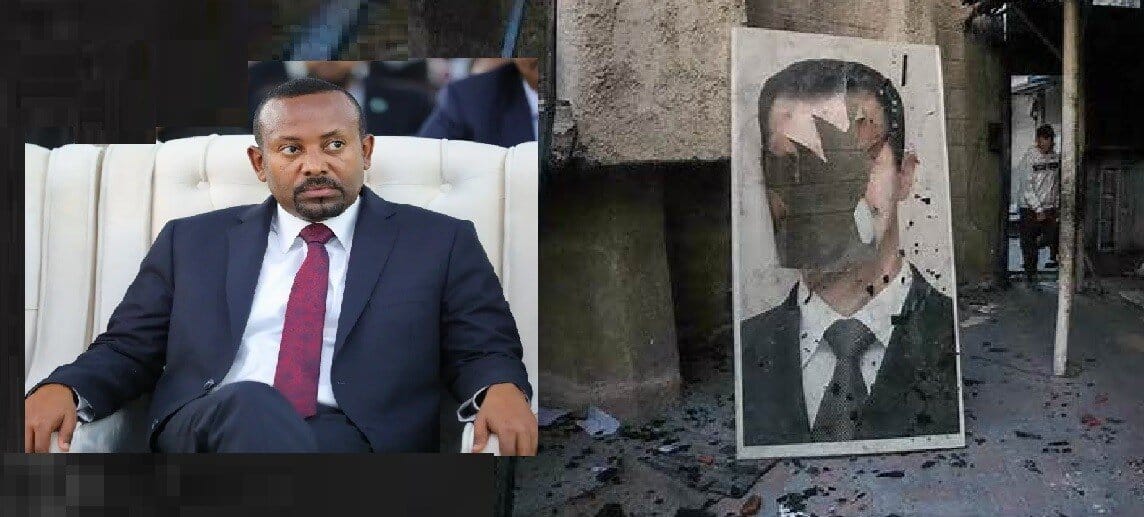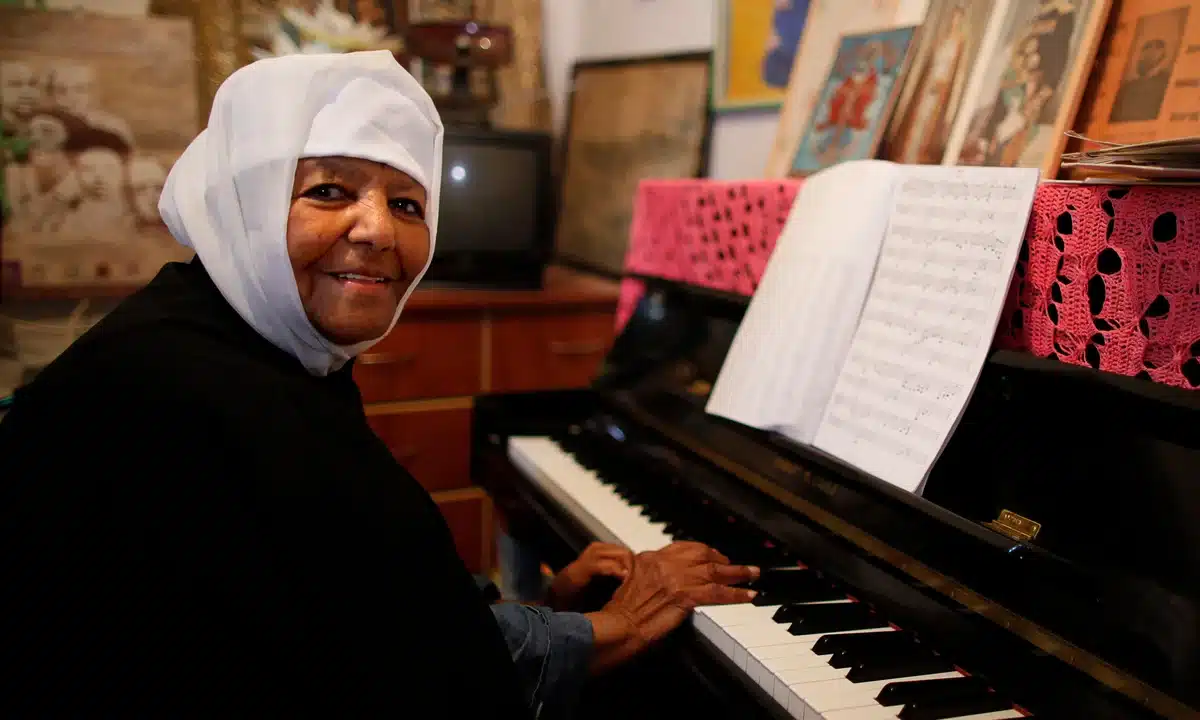By Abebe Gellaw (Meskerem 1, 2005 E.C.)
The ancient Greek philosopher Heraclitus is credited as saying: “The only thing that is constant is change.” This simple but profound statement is accepted as a universal truth. Those who have seriously grasped the meaning of life are always ready for change and challenge. While the majority of Ethiopians have been craving for drastic and radical changes to end their miseries under TPLF’s oppressive regime, the ruling elite appear to be resisting and frustrating change.
The just ended Ethiopian year (2004 E.C.) will undoubtedly go down in the annals of Ethiopian history as one of the most dramatic years ever. We have been witnessing great changes. Some of the most momentous events of the year have been etched in our memories including the extended search for the whereabouts of the late Prime Minister that was eventually concluded with his dramatic return from Brussels in a coffin. The man who terrorized Ethiopia for the last 21 years was finally humbled.
It was evident that none of his cronies, who were crying and wailing like newly orphaned kids on live TV, were prepared for such a “heartbreaking” turn of events. They seemed to forget that their master, whose brutality and ruthlessness was well-known across the world, was mortal like his victims. They were silent when he killed and tortured defenseless citizens, but they were wailing and crying when he died. Facing an uncertain future, many of these egotistic agents of oppression have obviously been crying for themselves rather than the fallen despot. They are simply scared of change.
The last quarter of the year has particularly been the most significant as Ethiopia has been undergoing a quiet revolution that can be attributed to an act of providence at a time when citizens have been fatigued with hopes and despairs. For the first time in memorable history, Ethiopians welcomed the New Year without a ruler at the helm of power. The death of Meles Zenawi, who dominated and dictated Ethiopia for the last 21 years, is a radical change. Ethiopia after Meles is a new country that needs to readjust and reconcile itself with the realities of the day.
The past year started with a series of arbitrary arrests and charges of terrorism against journalists, human rights defenders and dissidents. The late Prime Minister ordered the arrest of thousands of innocent Ethiopians across the country, including a large number of Oromo political activists, some of whom were charged with trumped-up terrorism offenses.
In 2004 gross human rights violations and abuses reached a new height. Almost every vocal dissent was convicted and labeled a “terrorist”. Meles defended the outrageous law by dismissing foreign critics such as Human Rights Watch and Amnesty International as bigots and racists.
Journalist Eskinder Nega and the up-and-coming political leader Andulalem Arage were arrested on September 14th, 2011 (Meskerem 3, 2004 E.C). Eskinder was manhandled and hauled by security agents in front of his son, Nafkot, who was born in jail prematurely. Despite international uproars, the late tyrant obstinately defended his shoddy terrorism law as the pinnacle of justice that would protect the government and people of Ethiopia from home-grown “terrorists” like Reeyot Alemu, Eskinder Nega and exiled dissidents whose crimes have been writing and speaking out against tyranny.
Though Eskinder and Reeyot were found guilty of being “terrorists” by Mr. Zenawi’s Kangaroo courts, both were honored with international journalism awards for their courage and commitment to freedom. In early May Eskider was awarded the 2012 PEN USA/Barbara Goldsmith Freedom to Write Award. Collecting her husband’s prize in New York, Serkalem Fasil said that no prison and torture chamber would deter Eskider from fighting for freedom. It was in the same month that Reeyot was honored with the International Women Media Foundation’s 2012 Courage in Journalism Award.
The sense of despair that ordinary citizens were feeling in the face of mounting discontent under the boots of tyrants was epitomized with the self-immolation of Yenesew Gebre, a young teacher and activist in Tercha, Dawro Zone. Yenesew, who sacrificed himself for freedom on a fateful Friday 11/11/11 (Hedar 1, 2004) in Tercha, added a new momentum for the struggle against tyranny. Before setting himself alight, the brave teacher was quoted as saying: “‘I will not live in a country where there is no justice and freedom. I will sacrifice myself so that others will be set free.” Yenesew passed away but ignited the flame of freedom in the hearts of so many Ethiopians.
The poignant case of Alem Dechasa, who committed suicide after she was dragged and beaten in front of the Ethiopian Consulate in Beirut; the ethnic cleansing of tens of thousands Amharas from Guraferda, South-West Ethiopia; the rise of Ethiopian Muslims to defend their rights from government encroachment; the controversy surrounding Waldba Monastery, which has been threatened by TPLF’s sugar project, are a few among the many memorable events of the year.
The death of former tyrant Meles Zenawi is by far the most significant event in the last two decades. The tyrant’s death marked the end of an era. Despite efforts to resist change, Ethiopia is definitely experiencing a revolution. The ruling elite that declared a two-week national mourning to grieve the loss of a tyrant is facing maddening chaos and crises, which has been compounded by the intense power struggle to fill the big void left by Meles Zenawi.
The widely condemned and reviled Meles regime is no more here. That in itself is a profound change that will definitely reset the future of Ethiopia despite the fact that the former dictator’s orphaned cronies have been making desperate efforts to salvage the system. But the tyrant’s personal rule is too complex to inherit and manage. The system is unraveling as the decapitated regime is still headless and clueless.
There are so many unknowns and uncertainties that necessitate the creation of a new system acceptable to all. Whatever they do, it is evident that the engine and brain of the complex ethno-apartheid system is dead and buried. So what is needed is a radical change that accommodates changing realities in the new Ethiopia.
Whatever happens, it is a great time for change. Ethiopians have to rise up in defense of their dignity and rights. We should no longer allow oppressors to dictate our future. We need to seize on the opportune time for revolution to end dictatorship and oppression for good. Change is here for the new Ethiopia. Let us welcome it with open arms by making concerted efforts to dismantle what remains to be an ethno-fascist regime that has denied Ethiopia from taking its rightful place in history.
It is not enough to call Ethiopia a symbol of black liberation and freedom without freeing itself from the age-old oppression it has been facing. We have to define the change to come….As much as there is change; there is also inertia that comes in the form of resistance to change. Unless Ethiopians rise up in unison and completely remove those who resist change, another historic opportunity to make wrongs right will be wasted. It is high time to end the hegemony of the TPLF.
Let us not wait for change; let us make it happen. I wish my fellow Ethiopians a year full of grace and blessing.
Happy New Year for the New Ethiopia!















